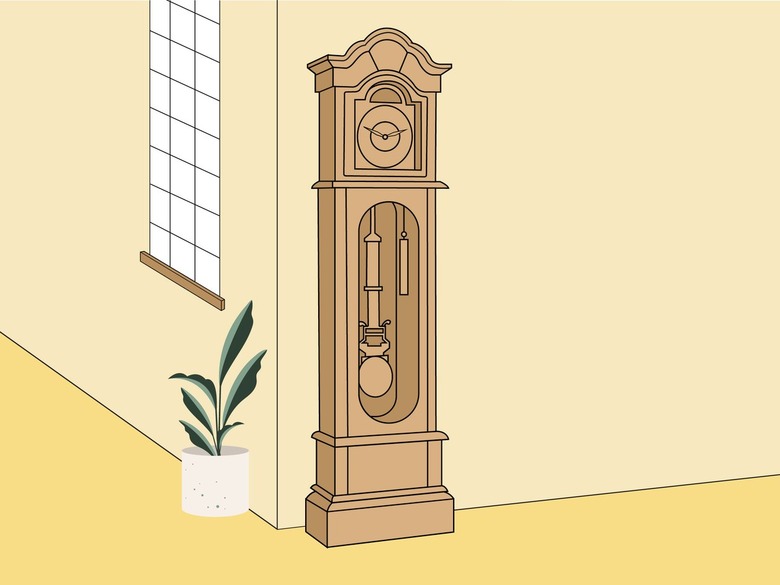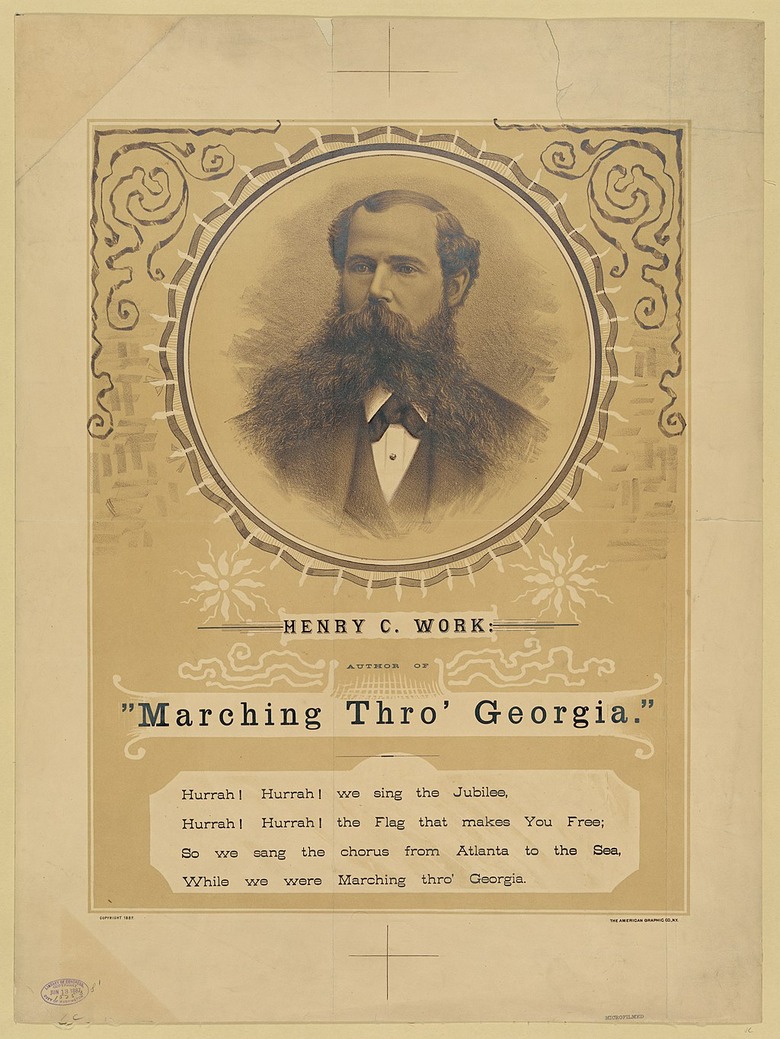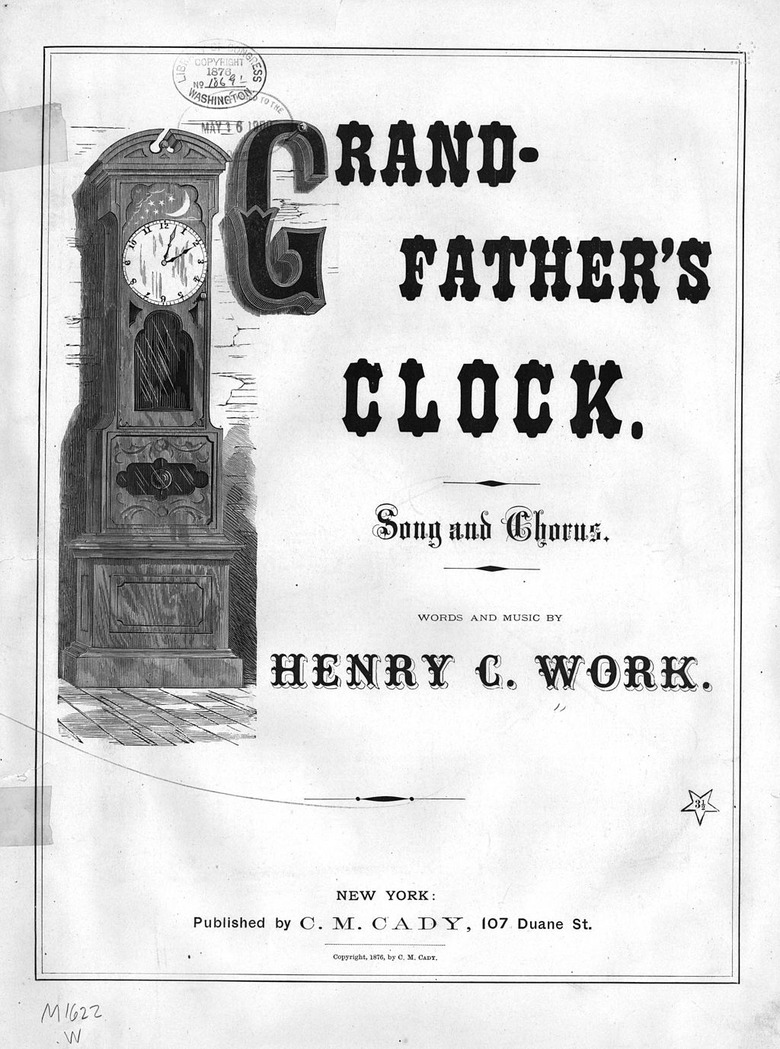Why Is It Called A Grandfather Clock, Anyway?
In 1874, American songwriter Henry Clay Work found himself, during a trip to England, in the lobby of the George Hotel in Piercebridge, a quaint market town in the northeast part of the country. Casting his eye around the room, Work noticed what was at that time called a longcase clock (in England), or tall clock (in America). Invented in the late 1600s, the longcase clock uses a longer pendulum (hence the original name) that allows for slower movement — that means the clock needs to be wound less often, which means it's both more accurate and longer-lasting.
The longcase clock in the George Hotel's lobby was especially lovely, according to Work, so he asked about it. The story he heard was one about a clock owned by two brothers. The clock kept exceptionally good time — until one of the brothers died. It required increasingly more maintenance and rewinding, and when the second brother died, the clock stopped working entirely.
Where does the name Grandfather clock come from?
Where does the name Grandfather clock come from?
Unable to get the story out of his head, Work started to write a song, which he'd eventually call "Grandfather's Clock," inspired by the special clock. In his version, the longcase clock belonged to a grandfather, and served him well — perhaps too well, for the clock seemed to recognize all the important events in the grandfather's life. It chimed twenty-four times on the day of his wedding, and again at the end of his life:
It rang an alarm in the dead of the night —
An alarm that for years had been dumb;
And we knew that his spirit was pluming for flight —
That his hour of departure had come.
Still the clock kept the time, with a soft and muffled chime,
As we silently stood by his side;
But it stopped short — never to go again —
When the old man died.
Released in 1876, two years after Work's visit to England, the song became a monster hit, and Work sold more than a million copies of the sheet music. He tried to recapture the magic a few years later with a follow-up version in which the grandfather's clock, long dispatched to the scrapyard, is replaced by a wall clock, but it didn't have the same impact as the original.
Work's tune served a handy purpose. Since no one could ever agree on a name for the tall kind of clock, "grandfather clock" was an easy shorthand — everyone who kept up with popular culture knew exactly what kind of clock Work was talking about. (It didn't hurt that the sheet music was printed alongside an image of a longcase clock, cementing the association.)
Since the song's debut, "Grandfather's Clock" has been covered by countless artists — it was a staple of early children's television shows in England, appeared on a Bing Crosby record, and was brought back to life by Boyz II Men in 2004.
The fact that it's kind of a spooky song means it inspired an episode of the original Twilight Zone and is featured regularly in video games where scary stuff happens.
It's also not just about grandfathers — smaller versions of pendulum clocks are often referred to as "grandmother clocks" or "granddaughter clocks." But unfortunately for Work's narrator, a "grandson clock" never really caught on.


